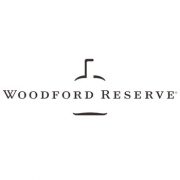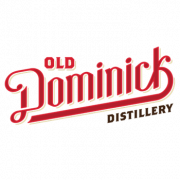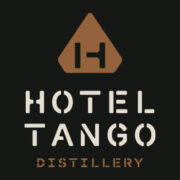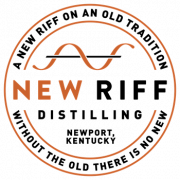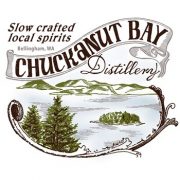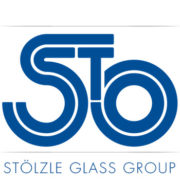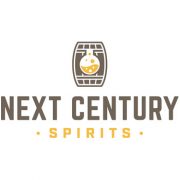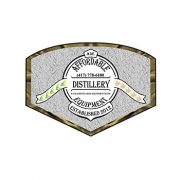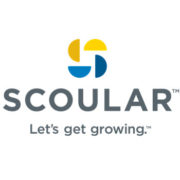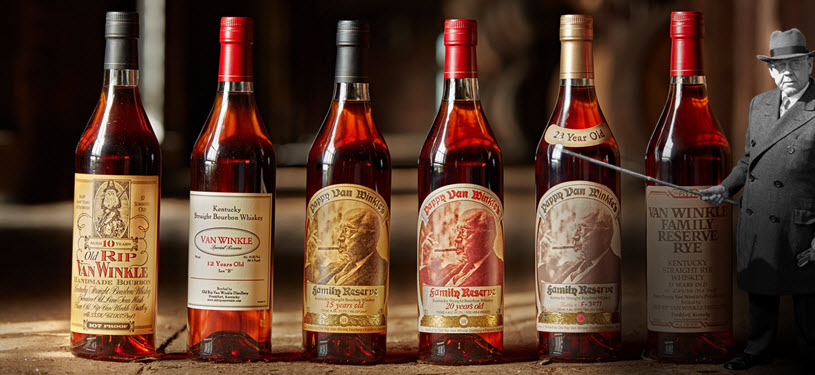
Buying a bottle of Pappy Van Winkle Bourbon on the secondary marketing is like Forrest Gump peering lovingly into a box of chocolates and lamenting, “You never know what you’re going to get.” If you do a simple online search for Pappy Van Winkle Bourbon you’ll find over 300,000 results. Once you get past the legitimate results like Buffalo Trace Distillery, Old Rip Van Winkle and the licensed liquor resellers the results get pretty murky. To be clear, just like making distilled spirits at home without a license is illegal; selling distilled spirits without a license is also illegal. As if that’s not bad enough, selling counterfeit spirits is even worse and Buffalo Trace Distillery, home to the Pappy Van Winkle line of bourbons since 2002 is cracking down.
“Do you want to buy a bottle of 23 Year Old Pappy Van Winkle Bourbon? I could drink about a million and a half of these. My Momma always said life was like a bottle of bourbon, you never know what you’re going to get.”
~ Counterfeit Forrest Gump
Counterfeit Pappy Van Winkle Bourbon Conviction
As with any popular product whether it’s Pappy Van Winkle bourbon, a Rolex watch or Cartier jewelry people are going to try to profit from knock off, counterfeit versions. It’s a constant game of cat and mouse trying to catch the sellers. Do a search on Craigslist or Ebay and you’ll find lots of products that according to the sites policies should not be there.
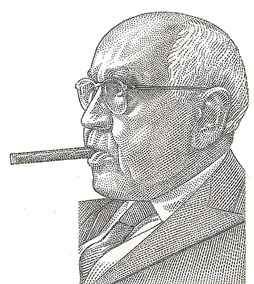
Pappy Van Winkle.
In the case of counterfeit Pappy Van Winkle Bourbon, Buffalo Trace Distillery and their team of lawyers have invested over $500,000 in taking action against counterfeiters. Buffalo Trace Distillery has successfully provided evidence of counterfeiting which resulted in a resident of New York pleading guilty for his sale of two bottles of counterfeit Pappy Van Winkle bourbon, which sold for $1,500 last year. The company says this case is the first successful prosecution for counterfeit Van Winkle Bourbon to date but other cases are under investigation. The defendant will be sentenced in January 2018.
“Sadly, the Van Winkle bourbons are the latest victim of counterfeiting where innocent consumers are duped,” said Mark Brown, president and chief executive officer, Buffalo Trace Distillery. “Avoid buying any bourbon or whiskey, especially the highly sought after ones, from anyone in the secondary market, which includes online private sellers, or in these social media groups that claim to offer genuine products. The only legal and reputable source you should be buying from is a licensed retailer.”
Scam artists have been operating in a variety of ways, some of which include taking empty Van Winkle bottles and refilling them with a variety of other liquids, sometimes cheaper bourbons, sometimes mixtures of products only known to the deceiver.
Nowadays, the con artists have gotten more sophisticated with the ability to print counterfeit labels on home printers and other technological advances. “It’s disheartening to see this happening and to see innocent consumers being swindled,” said Julian Van Winkle, president, Old Rip Van Winkle Distillery. “We cannot stress enough to be careful, and do not buy your Van Winkle products on the secondary market. The old adage of if seems too good to be true, it probably is, definitely applies here.”
Van Winkle cautions that if you see a bottle that does not have a matching face label with a capsule on top with the proper corresponding color, that’s a sure sign of fraud.
Stay Informed: Sign up here for the Distillery Trail free email newsletter and be the first to get all the latest news, trends, job listings and events in your inbox
State and Local Laws Alcohol Beverage Authorities Contacts
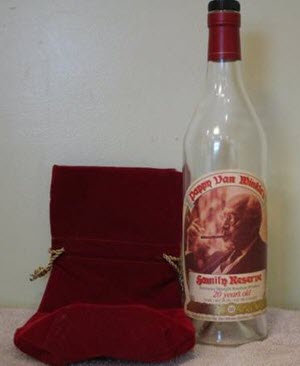
Empty bottle of Pappy Van Winkle Bourbon found on Craigslist for $95.
Any consumers that run across suspicious looking bottles or may have purchased a bottle from a source other than a liquor store are urged to call their local law enforcement.
In the United States, each state has the authority to regulate the production, sale, and distribution of alcohol within its borders. This means state and local jurisdictions may have their own requirements in addition to federal requirements. State laws and regulations vary widely from state to state, and may be more restrictive than federal regulations.
You must meet all state and local requirements in any state where you plan to do business (unless Federal law preempts the state law). If you plan to do business in a state, you must contact its appropriate authorities for more information about the state and local requirements. Here is the complete list of alcohol beverage authorities in the United States, Canada, and Puerto Rico.
A Brief History of Van Winkle Bourbon
The Old Rip Van Winkle Distillery has a four generation history. The Van Winkle family’s involvement in the bourbon industry began in the late 1800s with Julian P. “Pappy” Van Winkle, Sr. He was a traveling salesman for the W.L. Weller and Sons wholesale house in Louisville, Kentucky. Pappy and a friend, Alex Farnsley, eventually bought the wholesale house and also partnered with Mr. A. Ph. Stitzel on the purchase of Mr. Sitzel’s distillery. The three of them merged the two companies and became the Stitzel-Weller Distillery.
On Kentucky Derby Day in May of 1935 at the age of 61, Pappy opened the newly completed Stitzel-Weller Distillery in South Louisville (Shively.) Its prominent brands were W.L. Weller, Old Fitzgerald, Rebel Yell, and Cabin Still. Pappy had a heavy influence on the operations there until his death at the age of 91. His son, Julian, Jr. took over operations until he was forced by stockholders to sell the distillery in 1972. The rights to all of their brands were sold to Norton Simon, Inc. Later, United Distillers, who eventually ended up with the Stitzel-Weller Distillery, sold off all of the original labels around 1999.
After selling the distillery, Julian Jr. resurrected a pre-Prohibition label, the only one to which the Van Winkles kept the rights, called Old Rip Van Winkle. He used whiskey stocks from the old distillery to supply his brand. Julian Jr.’s son, Julian, III took over in 1981 when Julian, Jr. passed away. Julian III has continued with the Van Winkle tradition of producing high-quality wheated bourbon. His son, Preston, joined the company in 2001 to carry on the family’s tradition of making whiskey.
In 2002 the Van Winkles entered into a joint venture with Buffalo Trace Distillery. All of the Van Winkle’s whiskey production now takes place at Buffalo Trace Distillery under the guidelines the family has always followed.
Please help to support Distillery Trail. Sign up for our Newsletter, like us on Facebook and follow us on Twitter

